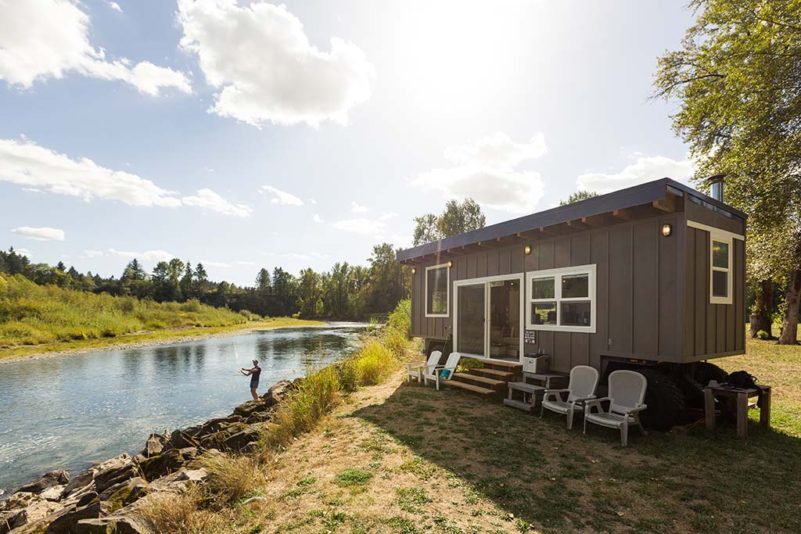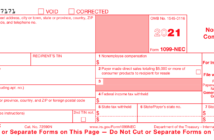When you file your tax return for your vacation rental activity, you might have questions about how to file, what your filing status is and what forms to use. The IRS provides many different paths to the same effective conclusion in your filing. This can lead to some confusion.
There is, however, a simple idea throughout the filing process: the IRS cares mainly about your activity (what you do) and not if you are a professional.
Let’s say that you have rental activity. You are not a licensed real estate professional and you do not have a company or an LLC. Is it possible to declare your activity as a business/professional activity on your return?
The short answer is Yes. The IRS provides rules to help determine this activity. If you pass the rules, you are good.
Also, as an individual, you are still entitled to additional deductions that simplify your tax return. You want to let the IRS know that you are using these benefits available to small landlord property owners. So even though you act like a business, the IRS still lets you use some breaks tied to non-professionals.
Table of Contents
Introducing Safe Harbor…
There are two types of Safe Harbor. The first one is when you conduct your rentals like a business.
If you are acting like a business but do not have the typical “credentials” that mark it as such as a license or company, the IRS has another path. It is called Safe Harbor. When you file forms using Safe Harbor you are saying the following to the IRS:
Safe Harbor:
Dear IRS, I don’t look like a business, but am acting like a business. So, please let me qualify for the Qualified Business Income Deduction (QBID).
Thanks.
The second type Safe Harbor is one offers special benefits to non-professional individuals. Under this Safe Harbor, you are offered the ability to simply your capital costs and supply expensing.
Types of Safe Harbor
Concerning rental activity, there are (3) type of Safe Harbor.
Qualified Business Income Deduction
The Qualified Business Income Deduction (QBID) allows you to deduct up to 20% of your rental income from your taxable income. It is a given that you have to be renting your properties for an accounting profit (not just cash flow profit) or you expect to.
You would declare to the IRS on QBI Page that you file on your return:
By this statement, I (we) attest that I (we) satisfy the requirements of the safe harbor to treat their rental real estate enterprise as a trade or business for the purposes of section 199A(d) as described in the unpublished revenue procedure provided in IRS Notice 2019-7.
Common desktop and cloud tax software will easily take care of filing this form for you.
De Minimis Safe Harbor Election
The IRS allows you to claim property you buy for $2,500 or less per item as an expense, instead of depreciating over time. This is called the de minimis safe harbor election.
You would declare to the IRS on a page: “I choose to treat my rental activity as a trade or business under the safe harbor rules for the qualified business income deduction“.
Common desktop and cloud tax software will easily take care of filing this form for you.
Small Taxpayer Safe Harbor Election
The IRS allows you to claim property improvements as an expense, instead of depreciating over time. However, all repairs, maintenance, and improvements to the building must total less than both of these:
- 2% of the original cost of the rental
- $10,000
This is called the small taxpayer safe harbor election. You’re eligible if your building’s un-adjusted basis is $1 million or less.
You would declare to the IRS on the Small Taxpayer Safe Harbor form: “The taxpayer hereby makes the safe harbor election for small taxpayers under Regulation 1.263(a)-3(h) for eligible properties“.
Common desktop and cloud tax software will easily take care of filing this form for you.
Safe Harbor Rules – QBID – More Detail
The QBID has quite a bit of documentation required. This information isn’t required to file your tax return. However, you should keep it available if requested in the future.
The safe harbor rules apply if you want to claim the qualified business income deduction for income you earned from rental real estate. If you meet the requirements, you can treat the rental activity as a qualifying trade or business for the qualified business income deduction.
The requirements are:
- Separate books and records showing the income and expenses of the rental real estate.
- 250 or more hours of services performed for the rental per year by owners, employees, agents or independent contractors. These activities qualify:
- Advertising for rent
- Negotiating and executing leases
- Rental application processing
- Collection of rent
- Operation, maintenance, and repair of property
- Management of real estate
- Acquisition of materials
- Supervision of employees or contractors
Takeaways…
You can have it both ways. The IRS provides a path for your to claim the QBID, just a like a business. Also, you can still be treated as a non-professional individual when it comes to declaring your expenses and supply purchases.



